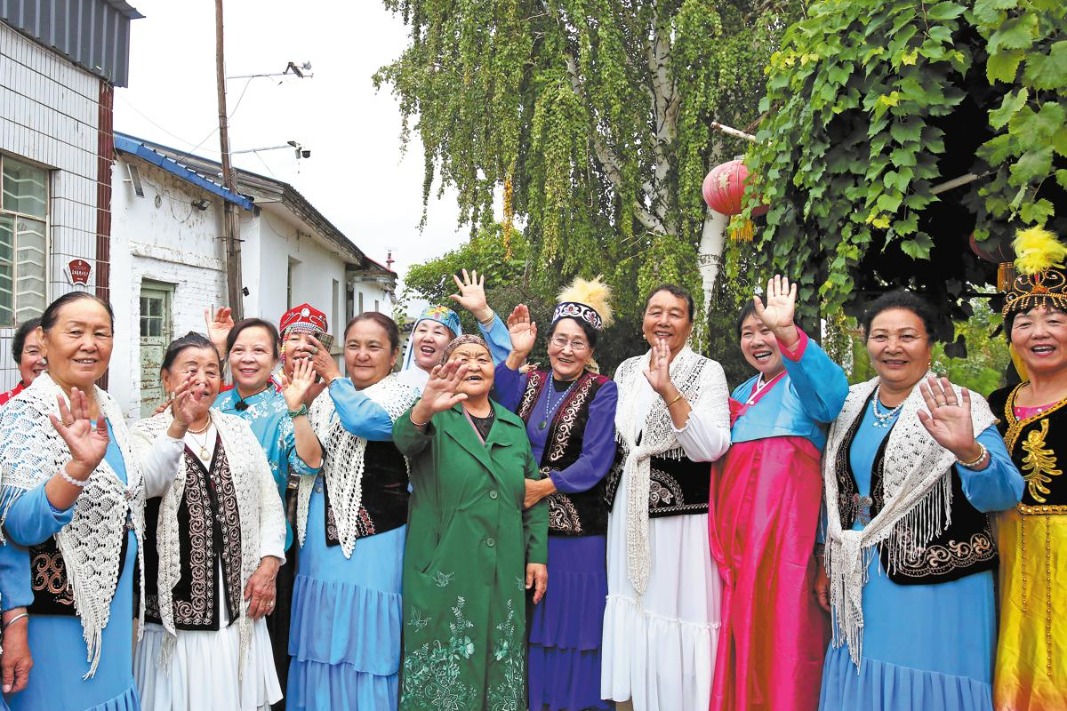Aged people need special care amid pandemic


The COVID-19 pandemic has not only claimed more than 6 million lives worldwide but also tested governments' ability to tackle the health crisis. In China, however, the impact of the pandemic has been disproportionately severe on the elderly people due to the rising aging population in the country.
China has about 264 million people aged 60 or above and 191 million aged 65 or over, separately accounting for 18.7 percent and 13.5 percent of the total population, according to the national census conducted last year. This means China may become an aged society in 2022, when people aged 65 or above are likely to account for 14 percent of its population.
Besides, there is widespread imbalance in the aging process in China, with the elderly population in the developed regions increasing more rapidly than in other places. Shanghai, for example.had about 5.18 million registered residents aged 60 or above by the end of 2019, accounting for over 35 percent of the city's residents with hukou, or household registration.
And since the elderly people are more vulnerable to infections and diseases, the pandemic has had a bigger impact on them and hence they need more support from the government.
First, elderly people are more vulnerable to infections and therefore at higher risk of falling seriously ill after contracting the novel coronavirus, even succumb to it because of their naturally weakened immunity. In addition, senior citizens who have chronic diseases face the risk of delayed or missed medical care due to the health system focus on containing the pandemic. The strict pandemic prevention and control measures, too, could interrupt the normal treatment of non-COVID-19 diseases.
Second, the digital divide is preventing senior citizens from accessing the needed eldercare and healthcare services, because many of them are still struggling to keep pace with the digital transformation. For instance, they may not be able to book a hospital appointment online, or independently display their health and travel codes as part of pandemic prevention and control measures.
Also, since many elderly people can only make phone calls and send/receive text messages using their smartphones, they cannot place orders or make payments online and thus can be easily cheated by fraudsters.
China had more than 1.03 billion internet users by the end of last year, with 119 million netizens aged 60 or above, according to the 49th China Statistical Report on Internet Development, which was issued by the China Internet Network Information Center in February this year. Fortunately, a growing number of senior citizens are learning to more gainfully use social media and demanding better access to the internet due to the high penetration rate of mobile internet.
Third, elderly people who are unable to adapt to the rapid changes online are more likely to feel dejected and depressed because they can hardly find new sources of spiritual sustenance — and it has been proven that negative emotions may lead to illness in old age.
Given the complex situation, the government, the market and society should work together to devise a long-term strategy to improve social governance, so as to meet the needs of the elderly people and improve the quality of their life.
In fact, the government should play a key role in improving social governance in a way that all senior citizens can access proper eldercare services, which is the basic requirement of the pension system. There is also a need to improve eldercare services on the basis of equality despite the gap among different regions and groups.
Moreover, enterprises should provide more innovative products tailored for the elderly people who feel left out because they are not adept at using mobile apps. By meeting the needs of older people, the enterprises can also increase their profits.
So, as the aged population continues to grow, provisions should be made to train more eldercare service providers and introduce new technologies including artificial intelligent-assisted devices such as robots to the eldercare industry.
Steps should also be taken to encourage communities and nongovernmental organizations to provide comprehensive eldercare services. For example, communities and nearby hospitals should work together to ensure elderly people can access healthcare services both for emergency and normal medical needs. Perhaps some places could even be encouraged to establish long-term personal health track systems for the elderly.
Communities, on their part, should encourage elderly residents to help each other and allow qualified senior citizens to work for and with the community they live in. And while the authorities could consider offering counseling for senior citizens, the media could guide the elderly to take correct anti-pandemic measures.
But while making these making these arrangements, the authorities should not adopt a one-size-fits-all approach, for the elderly people's needs are different and multifarious.
The author is deputy director of human resource center and a professor at the Institute of Population and Labor Economics at the Chinese Academy of Social Sciences.
The views don't necessarily reflect those of China Daily.
If you have a specific expertise, or would like to share your thought about our stories, then send us your writings at opinion@chinadaily.com.cn, and comment@chinadaily.com.cn.


































